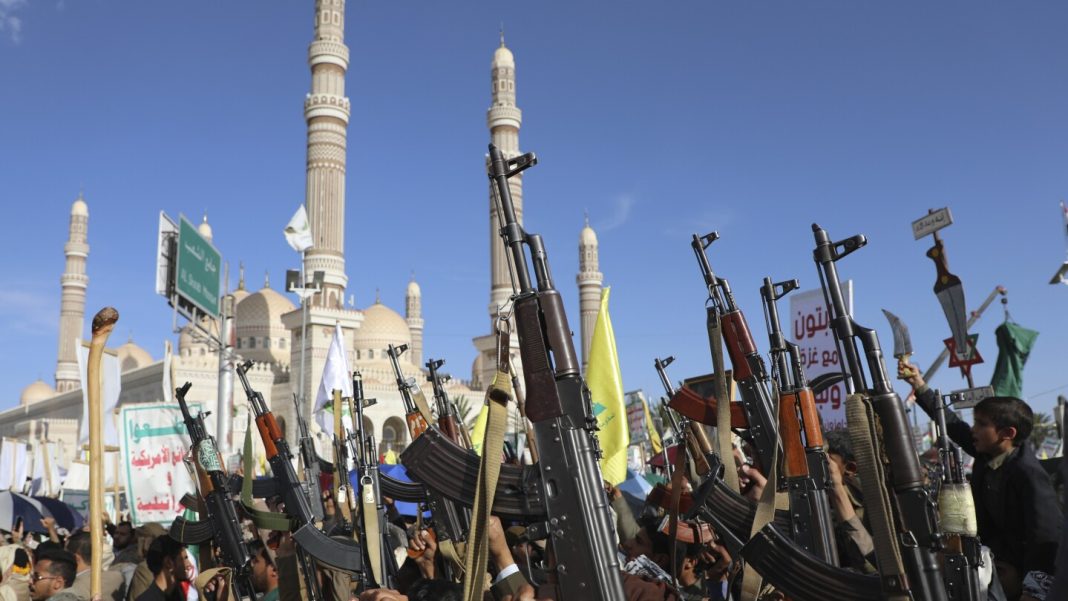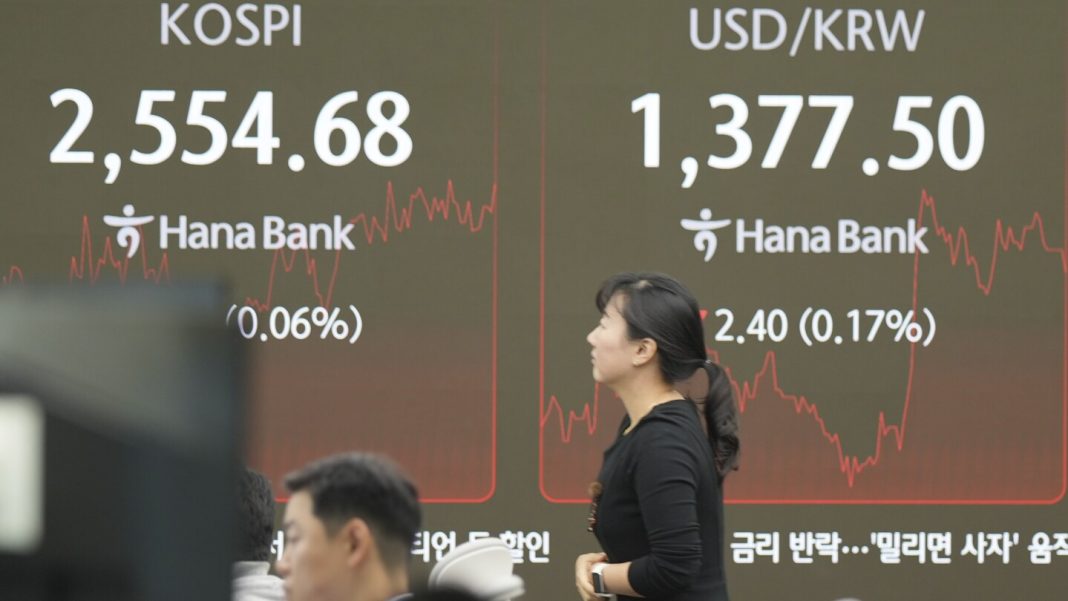UNITED NATIONS (news agencies) — Yemen’s Houthi rebels have been transformed from a local armed group with limited capabilities to a powerful military organization with support from Iran, Iraqi armed groups, Lebanon’s Hezbollah militants and others, U.N. experts said in a new report.
The Iranian-backed Houthis have exploited the Israel-Hamas war in Gaza and worked to enhance their status in Iran’s self-described “Axis of Resistance” to gain popularity in the region and beyond, the experts monitoring sanctions against the Houthis said in the 537-page report to the U.N. Security Council.
To support Iranian-backed Hamas militants, whose surprise attacks in southern Israel on Oct. 7, 2023, sparked the war in Gaza, the Houthis have been attacking vessels in the Red Sea and the Gulf of Aden, disrupting global shipping in a key geopolitical area.
Despite Houthi claims that they would target ships linked to Israel, the panel said its investigations revealed the rebels have been targeting vessels indiscriminately.
Its analysis of data from the International Maritime Organization, the U.S. and the United Kingdom revealed that at least 134 attacks were carried out from Houthi-controlled areas against merchant and commercial vessels and U.S. and U.K. warships in the Red Sea and the Gulf of Aden between Nov. 15, 2023, and July 31, 2024.
“The group’s shift to actions at sea increased their influence in the region,” the U.N. experts said. “Such a scale of attacks, using weapon systems on civilian vessels, had never occurred since the Second World War.”
In their attacks, the experts said, the Houthis used a new and previously undisclosed ballistic missile, the Hatem-2.
The five-member U.N. panel includes experts on arms, finance, regional affairs, international humanitarian law and armed groups. The experts hail from India, Egypt, Switzerland, Belgium and Cabo Verde. Confidential sources told the panel that the Houthis are coordinating operations with al-Qaida in the Arabian Peninsula and strengthening ties to the al-Qaida-linked al-Shabab militant group in Somalia.
The Houthis have been engaged in a civil war with Yemen’s internationally recognized government, backed by a Saudi-led coalition, since 2014, when they took control of the capital Sanaa and most of the north. Hopes for peace talks to end the war vanished after the Oct. 7, 2023, attacks.
The U.N. experts said the Yemen conflict, which started as an internal fight and expanded into a regional confrontation, “has now escalated into a major international crisis.”
According to the experts, the number of Houthi fighters is estimated at 350,000 now, compared with 220,000 in 2022 and 30,000 in 2015.
“The panel observes the transformation of the Houthis from a localized armed group with limited capabilities to a powerful military organization, extending their operational capabilities well beyond the territories under their control,” the report said.
The experts said the transformation has been possible due to the transfer of military materiel and training provided by the Iranian Revolutionary Guard’s elite Quds Force, Hezbollah and Iraqi specialists and technicians.
Military experts, Yemeni officials and even officials close to the Houthis indicated that the rebel group couldn’t produce complex weapons systems such as ballistic missiles, cruise missiles, surveillance and attack drones, portable air defense systems, and thermal sights, which they have used without foreign support, the U.N. experts said.
“The scale, nature and extent of transfers of diverse military materiel and technology provided to the Houthis from external sources, including financial support and training of its combatants, is unprecedented,” the experts said.




